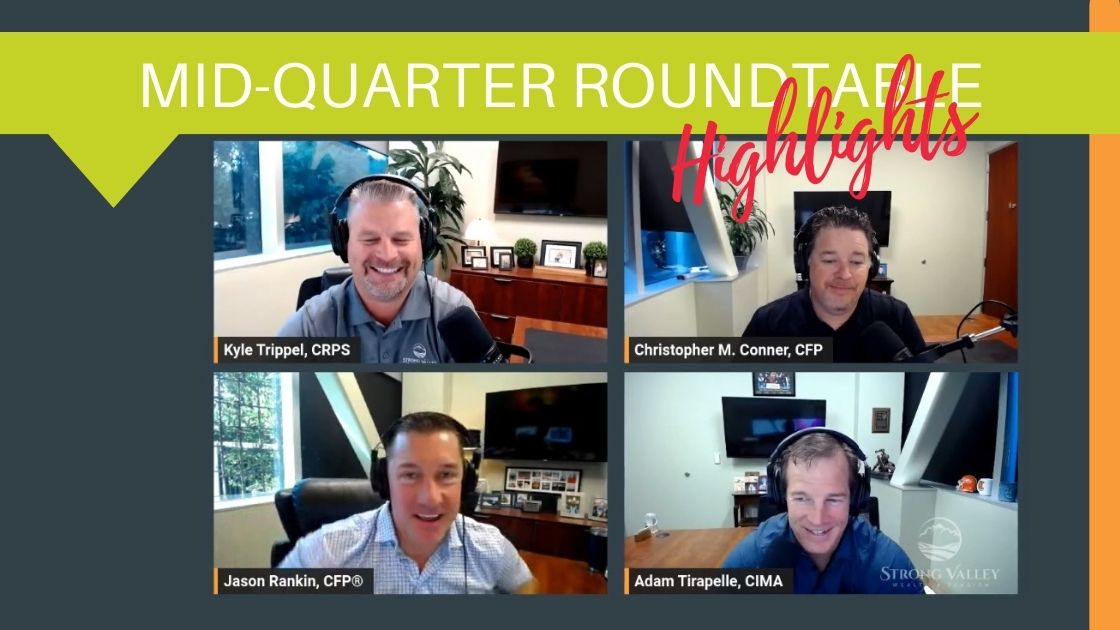You are now leaving the Strong Valley Wealth & Pension, LLC ("Strong Valley") website. By clicking on the "Schwab Alliance Access" link below you will be entering the Charles Schwab & Co., Inc. (“Schwab”) Website. Schwab is a registered broker-dealer, and is not affiliated with Strong Valley or any advisor(s) whose name(s) appears on this Website. Strong Valley is/are independently owned and operated. Schwab neither endorses nor recommends Strong Valley. Regardless of any referral or recommendation, Schwab does not endorse or recommend the investment strategy of any advisor. Schwab has agreements with Strong Valley under which Schwab provides Strong Valley with services related to your account. Schwab does not review the Strong Valley website(s), and makes no representation regarding the content of the Website(s). The information contained in the Strong Valley website should not be considered to be either a recommendation by Schwab or a solicitation of any offer to purchase or sell any securities.

Do you know what happens to former employees who were promised pensions or other benefits when a company goes bankrupt? Like trying to find an extinct Dodo Bird, you might have noticed that company pension plans seem to be disappearing. Tips to consider if you’re offered a lump-sum payment.

When a company announces bankruptcy, employees usually lose their jobs and benefits. But what happens to former employees who were promised pensions or other benefits?
Well, a federal judge ruled that the Westmoreland Coal Company – one of the largest coal companies in the country – could end the health benefits for its former miners and families. And the decision has many retirees worried about their own health care and pensions. And rightly so.
Defined benefit pensions, long on the decline, continue to disappear. In fact, according to the Department of Labor, since 1983 US companies have eliminated over 125,000 defined benefit plans.
If you are in one of these traditional pensions, odds are that, sooner or later, you won’t be.
With traditional plans, called defined benefit, employees don’t contribute and companies put away the money for retirees to draw on. Under defined benefit plans, you get paid a specified amount, usually monthly, calculated based on your final salary and your years of service. The onus is on the employer to keep the plan funded, even though the amount needed is fluid and unpredictable, which is one big reason for companies to abandon them.
Why are company pensions evaporating? Partly because the Pension Protection Act of 2006 established new accounting rules under which companies with pension plans must recognize their plans’ funded status on their balance sheets each year.
Since analysts and investors scrutinize those balance sheets and lots of pension plans are underfunded, companies decided to take action - because underfunded plans constitute a corporate finance headache.
According to a Towers Watson survey, many companies with pension plans are trying to limit the effect of those plans on their financial statements and cash flows, as well as trying to reduce the overall cost of their plans. And to do that many are simply ditching their plans and giving employees lump sums.
Here’s what to know about your options.
Why should you object to a wad of retirement cash all at once? Lump sums make sense if you expect to die soon without a surviving spouse who will need lifetime income. They also work if you already have another secure source of retirement income or are trained in handling such amounts of money at once.
In many other cases, accepting a lump sum payout rather than income from a pension may significantly affect your retirement funding unless you take proper steps.
Tips to consider:
As you might after any large windfall, plan with a good financial advisor.
While pension plans are heading toward the same fate as the Dodo bird, your retirement benefits don’t have to.



